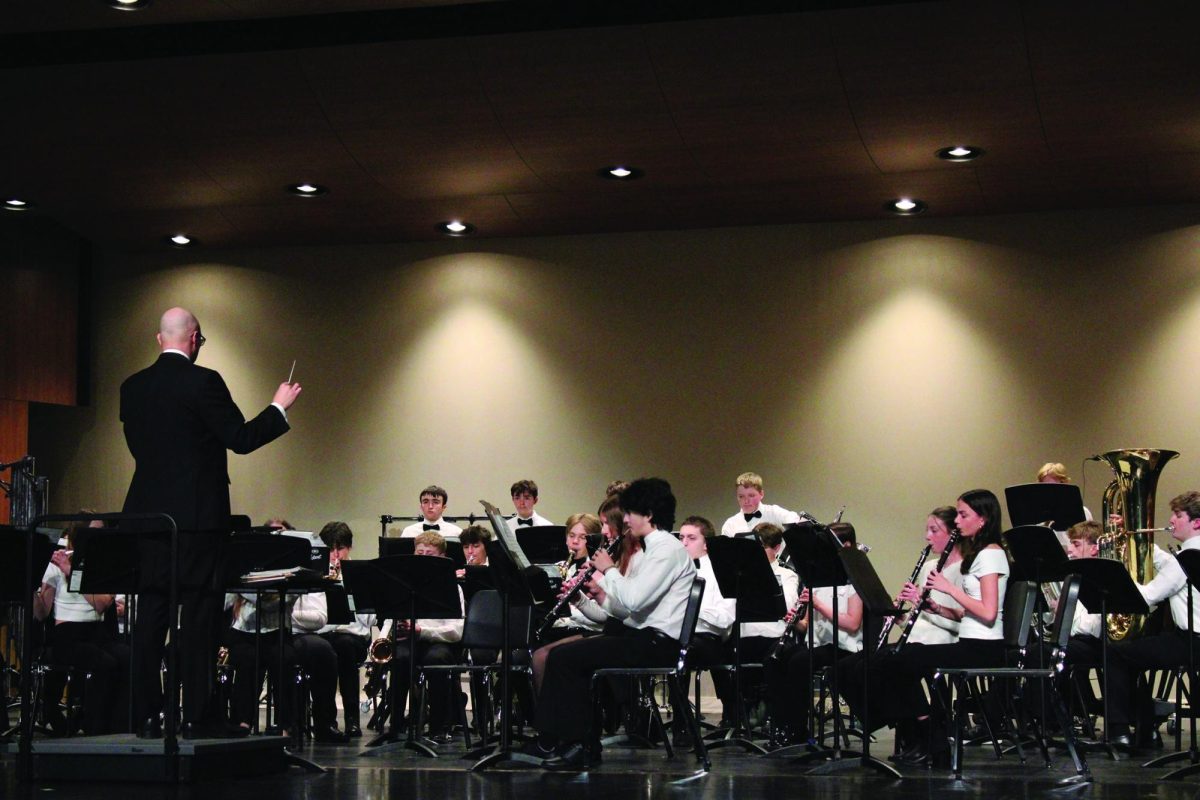Rank is right
September 27, 2018
Four years ago, LT stopped calculating class rank. Arguments against a system of class rank were made primarily on the basis of utilitarianism. Opponents of ranking students claimed that in order to do the greatest good for the greatest number of students, class rank should be eliminated. The line of thought held that class rank created an unhealthy and over-competitive atmosphere and incentivized less-than-optimal choices that were based on increasing weighted GPA rather than seeking a well-rounded education. A report submitted to the Board of Education by the Class Rank Task Force suggested that class rank primarily benefited those at the top to the detriment of the majority of LT students. Additionally, factors like “demonstrated interest” were becoming increasingly important to colleges for admissions and class rank was declining in importance. So rankings were eliminated.
The staff believes that a system that pushes students to take challenging classes and earn good grades is a positive force in any academic environment. This would also reinforce the administration’s goal to increase AP class enrollment, bringing about a system where students have an incentive to pursue the hefty weighted GPA boost that good grades in AP classes afford. It’s fine if that system is based on competition, which is, for better or for worse, a real factor in careers, higher education, sports, and virtually every other real-world pursuit. Students should be taught to set themselves apart from their peers for professional life by working well, individually and in teams, and being good at their work.
Although some students “gamed” the system by trying to add fractions of points to their weighted GPA, they were, by far, in the minority, because in making decisions based on class rank, students primarily aimed for a certain percentile or group, not necessarily for a specific number. The students who the elimination of class rank was supposed to help were not the ones jockeying for minute boosts to their GPA.
Regardless of whether class rank is good for everyone, class rank is certainly fair to everyone. Utilitarianism can sometimes be justified, and it was indeed noble of LT to seek the greatest good for as many of its students as it can. This is what the administration should seek to do in all areas, and it does so very well in places that are, admittedly, far more important than class rank.
But it becomes much harder to justify a utilitarian approach when it is based on altering results that were created directly by actions that students took and choices students made. Every student is different, and all students are able to handle different amounts of academic pressure. Academic achievement should be acknowledged, and precise information should be shared with colleges. Class rank allows this to happen.
Although class rank definitely has winners, those winners are not picked at random. They are determined by actions that students take, and it is okay for people to see the rewards and results of their actions. For over a century, freshmen started at LT with a blank page for a transcript, and graduated having determined their own standing by their own performance. Reinstating class rank would encourage students to take interesting and challenging AP classes to improve weighted GPA as well as allow students to be rewarded for academic achievement. That move away from class rank should be reconsidered.
Four years ago, LT stopped calculating class rank. Arguments against a system of class rank were made primarily on the basis of utilitarianism. Opponents of ranking students claimed that in order to do the greatest good for the greatest number of students, class rank should be eliminated. The line of thought held that class rank created an unhealthy and over-competitive atmosphere and incentivized less-than-optimal choices that were based on increasing weighted GPA rather than seeking a well-rounded education. A report submitted to the Board of Education by the Class Rank Task Force suggested that class rank primarily benefited those at the top to the detriment of the majority of LT students. Additionally, factors like “demonstrated interest” were becoming increasingly important to colleges for admissions and class rank was declining in importance. So rankings were eliminated.
The staff believes that a system that pushes students to take challenging classes and earn good grades is a positive force in any academic environment. This would also reinforce the administration’s goal to increase AP class enrollment, bringing about a system where students have an incentive to pursue the hefty weighted GPA boost that good grades in AP classes afford. It’s fine if that system is based on competition, which is, for better or for worse, a real factor in careers, higher education, sports, and virtually every other real-world pursuit. Students should be taught to set themselves apart from their peers for professional life by working well, individually and in teams, and being good at their work.
Although some students “gamed” the system by trying to add fractions of points to their weighted GPA, they were, by far, in the minority, because in making decisions based on class rank, students primarily aimed for a certain percentile or group, not necessarily for a specific number. The students who the elimination of class rank was supposed to help were not the ones jockeying for minute boosts to their GPA.
Regardless of whether class rank is good for everyone, class rank is certainly fair to everyone. Utilitarianism can sometimes be justified, and it was indeed noble of LT to seek the greatest good for as many of its students as it can. This is what the administration should seek to do in all areas, and it does so very well in places that are, admittedly, far more important than class rank.
But it becomes much harder to justify a utilitarian approach when it is based on altering results that were created directly by actions that students took and choices students made. Every student is different, and all students are able to handle different amounts of academic pressure. Academic achievement should be acknowledged, and precise information should be shared with colleges. Class rank allows this to happen.
Although class rank definitely has winners, those winners are not picked at random. They are determined by actions that students take, and it is okay for people to see the rewards and results of their actions. For over a century, freshmen started at LT with a blank page for a transcript, and graduated having determined their own standing by their own performance. Reinstating class rank would encourage students to take interesting and challenging AP classes to improve weighted GPA as well as allow students to be rewarded for academic achievement. That move away from class rank should be reconsidered.





















![Movie poster for '[Rec]" (2007).](https://www.lionnewspaper.com/wp-content/uploads/2023/04/rec-640x900.jpg)


